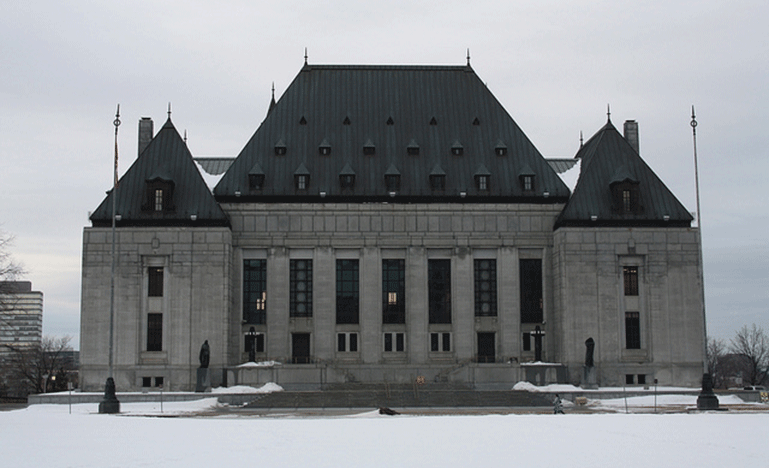A question of values
The Supreme Court of Canada sets aside ministerial decisions refusing to admit children of non-rights holder parents to French schools in the Northwest Territories.

The Supreme Court of Canada has ruled that the Northwest Territories' Education Minister failed to correctly assess s. 23 Charter protections aimed at safeguarding the rights of minority language communities. The ruling is likely to have a far-reaching impact on the interpretation and application of section 23 across the country, reaffirming the importance of considering the rights of minority language communities in educational decisions.
“The decision provides an important boost to minority language communities and minority language education rights by recognizing the important role that non-rights holders can play in contributing to the preservation and development of minority language communities,” says Nadia Effendi, chair of BLG's Appellate Advocacy and Public Law Group.
The case centered around the minister's refusal to admit children of non-rights holder parents to French-language schools in the territory and whether the government adequately considered the protections outlined in section 23 of the Charter. Section 23 guarantees certain categories of Canadian citizens the right to instruction in the minority official language, to preserve language communities and address historical injustices.
In 2016, the Northwest Territories implemented a ministerial directive on enrollment in French first language education programs, creating categories of eligible non-rights holder parents, including "non-citizen francophone" and "new immigrant." Despite recommendations from the Commission scolaire francophone des Territoires du Nord-Ouest, the Education Minister denied applications from non-rights holder parents in 2018 and 2019, citing non-compliance with the directive.
Initially, the Supreme Court of the Northwest Territories set aside the decisions on grounds they did not reflect a proportionate balancing of the protections conferred by section 23. However, the Court of Appeal restored the decisions, taking the view that the minister was under no obligation to consider section 23 since the parents were not rights holders.
The unanimous ruling from the Supreme Court of Canada, written by Justice Suzanne Côté, emphasizes that the minister's decisions have a significant impact on the values enshrined in section 23, namely concerning the preservation and development of minority language communities.
Applying the Doré framework which governs the judicial review of discretionary administrative decisions that engage the Charter, Justice Côté concluded that the minister had not adequately balanced these values with the government's interests and had given too much weight to the cost of the contemplated services.
"Protection of the right to instruction in the minority official language, explicitly entrenched in the Constitution, is a reflection of these values, insofar as education is a means of realizing the societal ideal that they embody," Justice Côté writes. "These values require preserving and developing the vitality not only of the minority language, but also of the minority culture."
"The admission of children of parents who are not rights holders under s. 23 of the Charter can have an impact on the preservation and development of minority language communities," she continues.
“The decision treats the question of whether Charter values are engaged separately from the decision of whether Charter values are limited,” says Effendi. “Where Charter values are engaged, they must be considered by the decision-maker for the decision to be reasonable. Where Charter values are limited, those limits must further be proportionately balanced against the government’s objectives.”
The court noted that, in the case at hand, the child concerned "had a sound knowledge of French," and ties to Francophone communities in the territory, and that their parents supported their learning the language.
Given the remedial nature of section 23, the top court held that pedagogical requirements carry more weight than concerns over cost. Therefore, the minister's decisions were deemed unreasonable, and in doing so, overturned the Court of Appeal's orders.
It is notable that the decision affirms the continued application of the Doré framework, according to Effendi. “The application of reasonableness review to administrative law decisions that engage the Charter has been subject to academic and judicial criticism, including from [Justice] Côté herself in her joint dissenting reasons with [Justice Russel] Brown J. in Law Society of British Columbia v. Trinity Western University.”
“Commentators and the judiciary have questioned the future of the Doré framework following the SCC’s decision in Vavilov, including the SCC’s commentary in that case about constitutional questions being subject to correctness review,” Effendi says. “However, this new precedent from a unanimous panel of the SCC endorsed the Doré framework for limits on Charter values, now bolstered by the strengthened focus on reasons and justification of Vavilov.”


